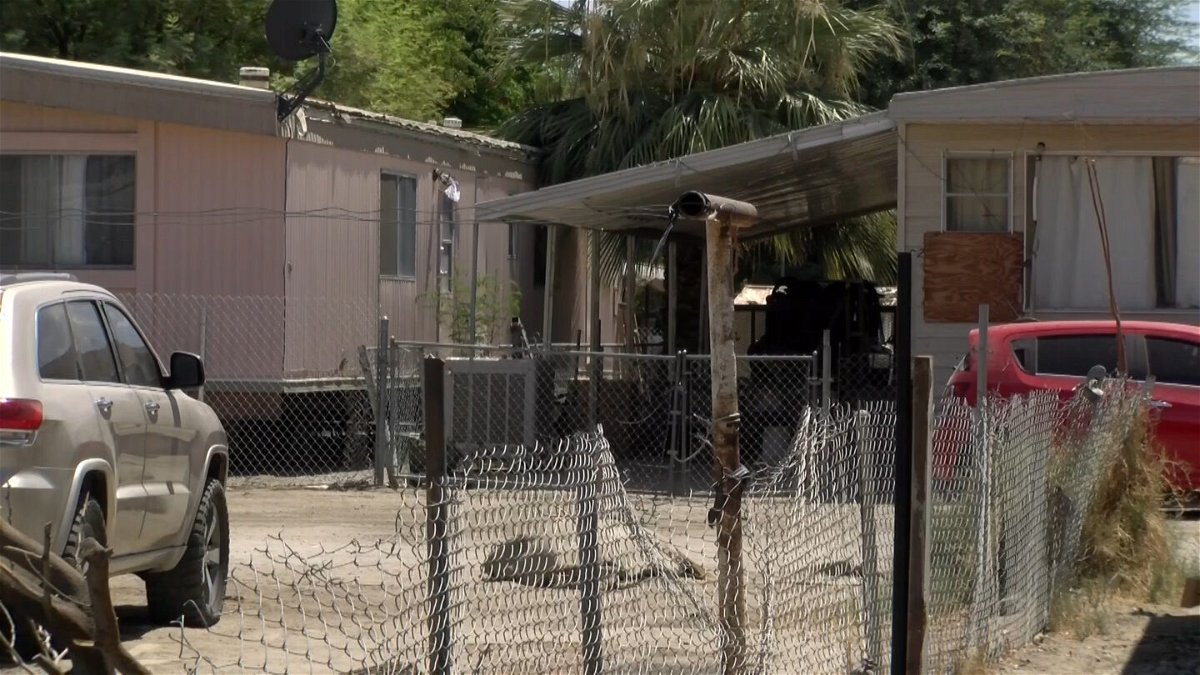Board OKs agreement with state to provide water to Oasis MHP residents

The Board of Supervisors today unanimously approved an $884,000 agreement with the California State Water Resources Control Board to supply daily water rations to residents of a dilapidated mobile home park in eastern Riverside County.
In a 5-0 vote without comment, the board signed off on the contract, which will be entirely funded by the state.
"The funding under this agreement will be used to purchase and deliver bottled drinking water for the Oasis Mobile Home Park community through Dec. 31, or until a long-term solution for the existing (water) contamination is in place,'' according to a statement posted to the board's agenda. "The funding will provide approximately three gallons per person per day of bottled drinking water to approximately 1,900 residents."
The park has been a fixture of controversy for years, most recently due to high levels of arsenic in drinking water, resulting in three emergency administrative orders issued by the U.S. Environmental Protection Agency between 2019 and 2021, barring use of the underground reservoir there.
Check Out: White House Senior Advisor, Rep. Raul Ruiz tour troubled Oasis Mobile Home Park
Since then, there have been ongoing relief operations to supply inhabitants with potable water via bottles and other imported means. The county has borne some of the costs.
In the last three years, over 350 people from 72 households have been relocated out of the facility, according to officials. At least 200 trailers remain occupied at the site, located on 60 acres in the 88-700 block of Avenue 70, within the Torres-Martinez Desert Cahuilla Indian Tribe's reservation in Thermal.
The board in January signed off on a compact with the tribe to work on preventing repopulation of the park through enforcement measures, including the demolition of some unoccupied trailers.
Along with arsenic, the park has contended with trash overflows and infrastructure deficiencies.
County officials, coordinating with nonprofit groups, have conducted outreach campaigns at the park, which is populated mostly by agricultural workers, including undocumented migrants.
The facility has no state or federal business permits, although the U.S. Bureau of Indian Affairs has reportedly attempted to enforce some authority over its operation, without success.
In April, the board approved the Oasis Mobile Home Park Housing Opportunities Program -- or, "OHOP'' -- which is managed by the county's Housing & Workforce Solutions Department.
The agency, utilizing funds allocated by the California Department of Housing & Community Development as part of the state's 2021-22 fiscal year budget, is making grants, up to $100,000 each, available per household for the placement of residents in alternative dwellings or on trailer park lots away from Oasis.
The goal is "securing improved housing (for park residents) either by transporting their current home to a permitted location, purchasing a home in a permitted location, purchasing vacant land to move their existing or new mobile home, or using the funds toward a down payment of a single-family home,'' according to the Housing & Workforce Solutions Department.
Only residents who occupied trailers at Oasis prior to Oct. 26, 2021
-- when the county received the grant
-- are eligible for the OHOP money.
The park bears similarities to the Desert Mobile Home Park, better known as "Duroville,'' that was also on Torres-Martinez land.
That facility, which was at the time replete with electrical and water deficiencies, was the subject of federal civil action that concluded in 2009 and culminated in the park going into receivership, out of tribal control. Four years later, it was permanently shut down.
Since November, the EPA found water containing arsenic levels above federal legal limits in at least seven mobile home parks. In May 2022, I-Team investigator Peter Daut took an in-depth look at the water issues in the east valley.




